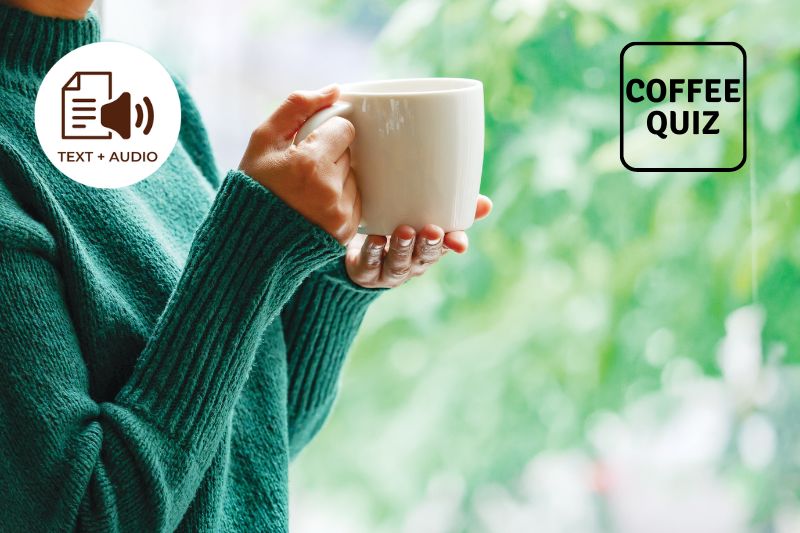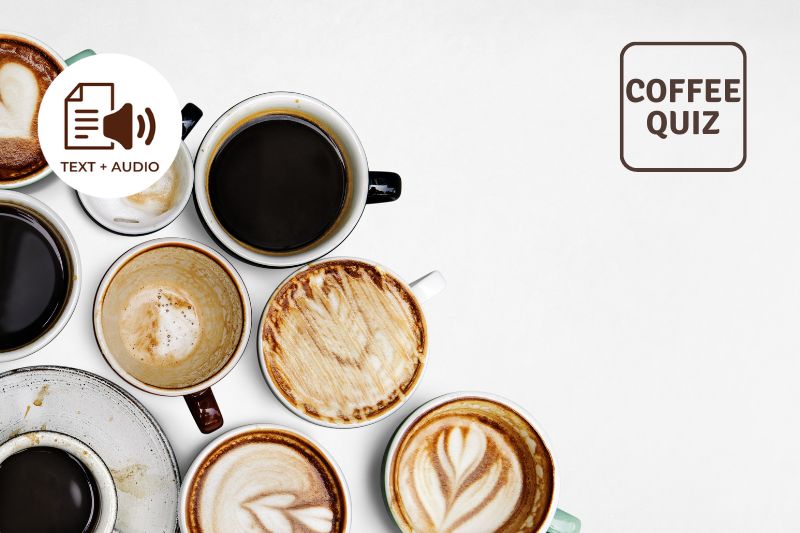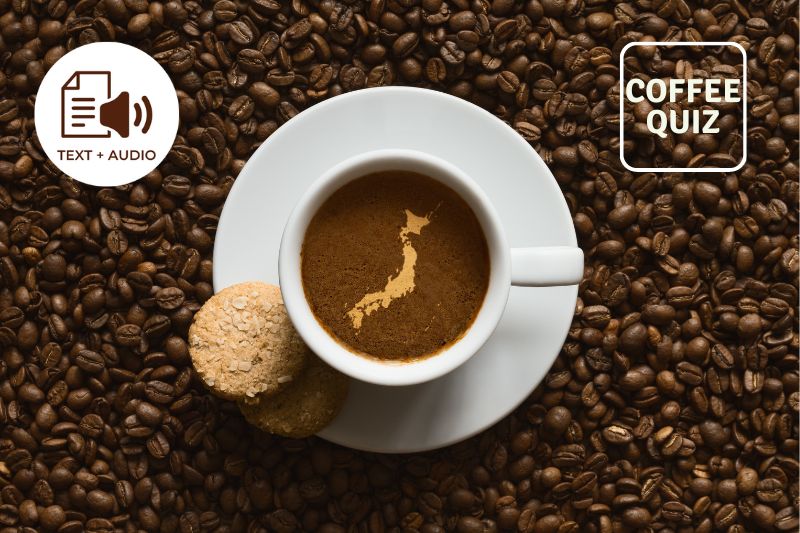There was a time when the main choice coffee drinkers had to make was whether to take it black or modify the flavor by adding sugar, milk, or creamer to it. Thanks to easier exposure to cultural diversity nowadays, coffee lovers have experienced and adopted different ways to enjoy their favorite caffeine fix.

For coffee connoisseurs, good coffee is flavorful and aromatic, manifesting the right balance of acidity and sweetness. The range of the actual taste and smell may widely vary from nutty or chocolatey to floral or fruity, but good coffee is always naturally sweet, nuanced by a bracing acidic quality. Bitterness is an inherent quality in coffee, but it is never overpowering; instead, it complements all existing flavor overtones, giving way to an overall delightful sensory experience.
If you’re a coffee drinker, how do you like your joe, and in what vessel do you usually take it? These two choices often go hand in hand.
The Effect of Vessel Choice on Coffee Flavor
On the assumption that you’ve achieved the coffee flavor of your preference, are there any other considerations for optimizing your drinking experience? To begin with, it’s important to be particular about the mug or tumbler you use for holding your coffee. The general consensus as well as scientific studies say that it does impact your drinking experience.
Apparently, the main material of your drinking vessel has a direct effect on the flavor of coffee. For starters, it’s paramount to note that both coffee flavor and aroma are harder to detect at temperatures below 50 degrees Celsius (122 degrees Fahrenheit). To maximize your enjoyment, take care to use a vessel that can keep your coffee hotter than this threshold for the longest possible time.
Fortunately, these days, there are electric self-warming mugs and tumblers that allow for precise temperature control. For instance, the Ember Temperature Control Smart Mug lets you keep your drink at your preferred temperature between 49 and 63 degrees Celsius (120 and 145 degrees Fahrenheit). You can do this through an app that connects to your phone via Bluetooth. With this product, you can ensure that your coffee’s temperature never goes below the threshold.
The material of your cup can also affect not only the taste but also the integrity of your coffee through leaching, which is more likely to happen when hot and acidic drinks are involved. When the material leaches into the drink, you will definitely be able to sense it.
With these considerations in mind, take a look at the most common coffee cup materials and how they may affect the flavor of coffee.
Glass
Glass has a very distinct aesthetic appeal, and it’s understandable that many drinkers would opt to enjoy their coffee in a glass vessel. Take note, however, that, for hot coffee, glass has to be tempered and heat-resistant so that it won’t shatter. For a comfortable grip on it, a double-walled glass cup would also be preferable.
Glass doesn’t leach chemicals, so it won’t affect the taste or odor of your coffee. The main caveat with this material is that it has low heat retention, although double-walled glass cups are known to keep the drink temperature more stable.

With this in mind, it’s best to use a glass if you know that you’ll be finishing your drink quickly, so your coffee won’t be around long enough for it to get cold. In any case, glass cups aren’t practical for taking your coffee with you on the go, and not only for their inability to retain heat longer.
Metal
While stainless steel is the most common metal used these days for coffee vessels, other metals and alloys also serve. Copper, pewter, and sterling silver are just some of them. Stainless steel mugs are typically made with two layers of the material with a vacuum in between, allowing no air to transfer temperatures, which means that the coffee they hold can stay hot for a longer time.
The main issue with metal vessels is leaching. Even food-grade stainless steel, especially poorly constructed products, could affect the taste of coffee as it can have a metallic flavor and odor.
Stainless steel is made to be resilient, but it does get porous over time. This means that stainless steel vessels will absorb oils, which will give the liquids they hold some additional tastes and smells. The resulting drinking experience could prove to be quite unpleasant. This leads to the conclusion that stainless steel coffee vessels are designed to be retired after a certain period of time.
Also, while the amount of metal that leaches into your drink is reportedly not harmful, the same is not true for antique or vintage pewter, which is likely to have lead in it.
Plastic
This is obviously a popular material for coffee vessels. When it comes to traveling drinkware, it insulates better than glass and it’s less fragile, although not quite as hardy as metal, of course. Like metal, however, it can trap flavors and odors from previous content. Besides this, leaching is also a concern. Even paper cups used by coffee shops are lined with plastic to make them more liquid-proof, so that would explain any plastic taste you may detect from your to-go coffee.
Ceramic
Ceramic coffee cups are very popular as well since they are lightweight, relatively inexpensive, and generally attractively designed. On top of that, they retain heat well. Ceramic is considered a neutral material and is expected not to tamper with the taste of coffee.

Leaching, however, may also be a problem, especially if the ceramic is not properly glazed. There were some reports of ceramic-related lead poisoning some years ago, but if baked long enough at hot enough temperatures, ceramic should be food-safe. Still, take the time to investigate and verify that the glaze used for your earthenware or porcelain coffee set does not contain any lead.
Other Vessel Properties That Affect Coffee Taste
While the main factor that impacts coffee flavor and odor is the material, there are other components that also influence the sensation that coffee provides. These include:
Color
According to a study by Van Doorn, Wuillemin, and Spence (https://flavourjournal.biomedcentral.com/articles/10.1186/2044-7248-3-10), people seemed to perceive better intensity in coffee drunk out of white mugs.
Meanwhile, a separate experiment conducted by Carvalho resulted in the observation that drinking from pink, rounded cups enhanced people’s perception of the coffee’s sweetness.
Shape
In the same experiment by Carvalho, people also perceived a stronger coffee aroma from tulip-shaped cups. Since smell is directly linked with taste, this shape would also impact the perceived flavor.
Scientifically, wider vessels expose more coffee to the air, which affects the rate of oxidation. This influences the softening of tannins and the rate of heat loss. Faster oxidation results in increased sweetness, which explains why narrower vessels seem to enhance the acidity of coffee.
Your Coffee Cup - A Crucial Choice
Drinking coffee is a multisensory experience. Besides the quality of the drink itself, the characteristics of the coffee vessel have a critical effect on your satisfaction. This conclusion stems both from mere perceptions and actual alterations caused by physical factors. At the end of the day, the fact remains that you should give more thought to your vessel of choice for optimum coffee enjoyment.
• Disclosure: I only recommend products I would use myself, and all opinions expressed here are my
own. This post may contain affiliate links that I may earn a small commission at no additional cost to you.
The commission also supports us in producing better content when you buy through our site links.
Thanks for your support.
- Kei and Team at Japanese Coffee Co.
Get Free Bonus Books

Sign up for free to the Coffee Club to get advice and exclusive articles about how to choose Japanese Coffee, and tips, tricks, and recipes for enjoying Japanese coffee.
About the author
Kei Nishida
Author, CEO Dream of Japan
Certification: PMP, BS in Computer Science
Education: Western Washington University
Kei Nishida is a passionate Japanese tea and coffee connoisseur, writer, and the founder and CEO of Japanese Coffee Co. and Japanese Green Tea Co., both part of Dream of Japan.
His journey began with a mission to introduce the world to the unparalleled quality of Japanese green tea. Through Japanese Green Tea Co., he established the only company that sources premium tea grown in nutrient-rich sugarcane soil—an innovation that led to multiple Global Tea Champion awards.
Building on this success and his passion for Japanese craftsmanship, Kei expanded into the world of coffee, pioneering the launch of Japanese Coffee Co., the first company to bring Sumiyaki charcoal-roasted coffee to a global audience. His dedication to authenticity and quality ensures that this traditional Japanese roasting method, once a well-kept secret, is now enjoyed worldwide.
Beyond tea and coffee, Kei has also introduced Japan’s legendary craftsmanship to the world through Japanese Knife Co., making handmade katana-style knives—crafted by a renowned katana maker—available outside Japan for the first time.
Kei’s journey continues as he seeks out and shares the hidden treasures of Japan, one cup and one blade at a time.
Learn more about Kei










